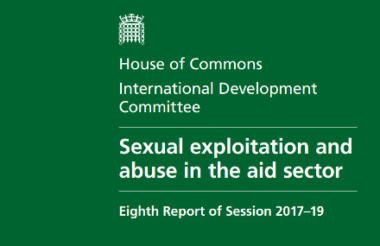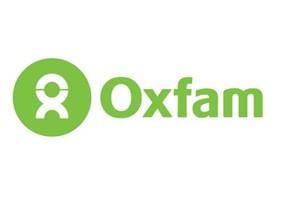Sexual exploitation and abuse is widespread in the international aid sector but charities and funders have failed to face up to the problem, according to a critical report by MPs out today.
The International Development Committee has published the report from its inquiry into sexual exploitation and abuse in the aid sector and had called for a “fundamental culture change”. The committee began the inquiry earlier this year after media coverage of various incidents where aid workers had exploited beneficiaries and fellow aid workers.
According to the report, abuse in the sector is “endemic”, but the full scale is impossible to determine because of underreporting.
The committee says that both charities and the Department for International Development could, and should, have done more in the past.
“There seems to be a common thread in this apparent inability of the aid sector to deal well with allegations, complaints and cases involving sexual abuse,” the report said, and criticised the “strong tendency” for victims and whistleblowers to “end up feeling penalised”.
The committee heard evidence from a number of people involved in the aid sector who provided evidence of attempts to understand the scale and scope of the problem over a number of years.
Despite awareness of the problem it said the sector’s response since 2002 has been “reactive, patchy and sluggish”.
This “episodic” approach “driven by concern for reputational management” is unlikely bring about necessary change, the report said.
It said that the “overall impression is of complacency, verging on complicity”.
The committee says it welcomes fresh commitment from DfID to address the failings highlighted earlier this year, but that it is “yet to be assured that momentum will be maintained”.
‘Horror must be confronted’
The chair of the committee, Stephen Twigg MP, said that because the sector had failed to deal with the issue for a number of years means victims have been “at the mercy of those who seek to use power to abuse others”.
He said the issue would continue to be a priority for his committee.
He added that: “The committee is deeply concerned that previous attempts have amounted to limited action in order to quell media clamour with no lasting impact or redress.
“We acknowledge that today’s report – though damning - is a small, first step, but take note: we are putting all the relevant authorities on notice. The International Development Committee will continue to give this high priority and we will be tracking progress with a view to ensuring real improvement is made. No matter how insurmountable this looks, solutions must be found. This horror must be confronted.”
‘Culture change’
The report calls for a “fundamental culture change” around how sexual abuse and exploitation is handled by the sector.
This means charities being more transparent about reporting allegations and their outcomes, but also not being penalised by funders for doing so.
Pauline Latham MP, the IDC member charged with leading the follow-up on DFID’s eventual reply to this report, said: “I believe deep cultural change is required across all aid organisations, starting with their – all too often male – senior leadership. Sexual abuse of aid beneficiaries, and of women aid workers, which I believe is linked, must be stamped out.”
The report calls on the sector to improve existing referencing systems.
“A primary concern for the sector should be the improvement of existing referencing procedures, so that all organisations are, at the very least, displaying basic HR good practice,” it says.
‘Galling’ that funding is the problem
It said it was “galling to hear that the main obstacle to progress in this area has been a lack of funding” and said DfID and other funders should build safeguarding costs into grants and contracts.
There are also specific recommendations such as the introduction of a register for aid workers, an ombudsman and a collective ambition for organisations to work towards gender parity at board and senior management level.
An ombudsman, the report says, is needed because “self-regulation has failed”. This would not be international regulator but instead a “provide a right of appeal” for people where the internal process have failed.
The report calls on DfID to report annually on the sector’s performance when it comes to safeguarding.
It also calls for the Charity Commission to be “provided with sufficient resources” – though it does not suggest what this level might be.
Related articles












